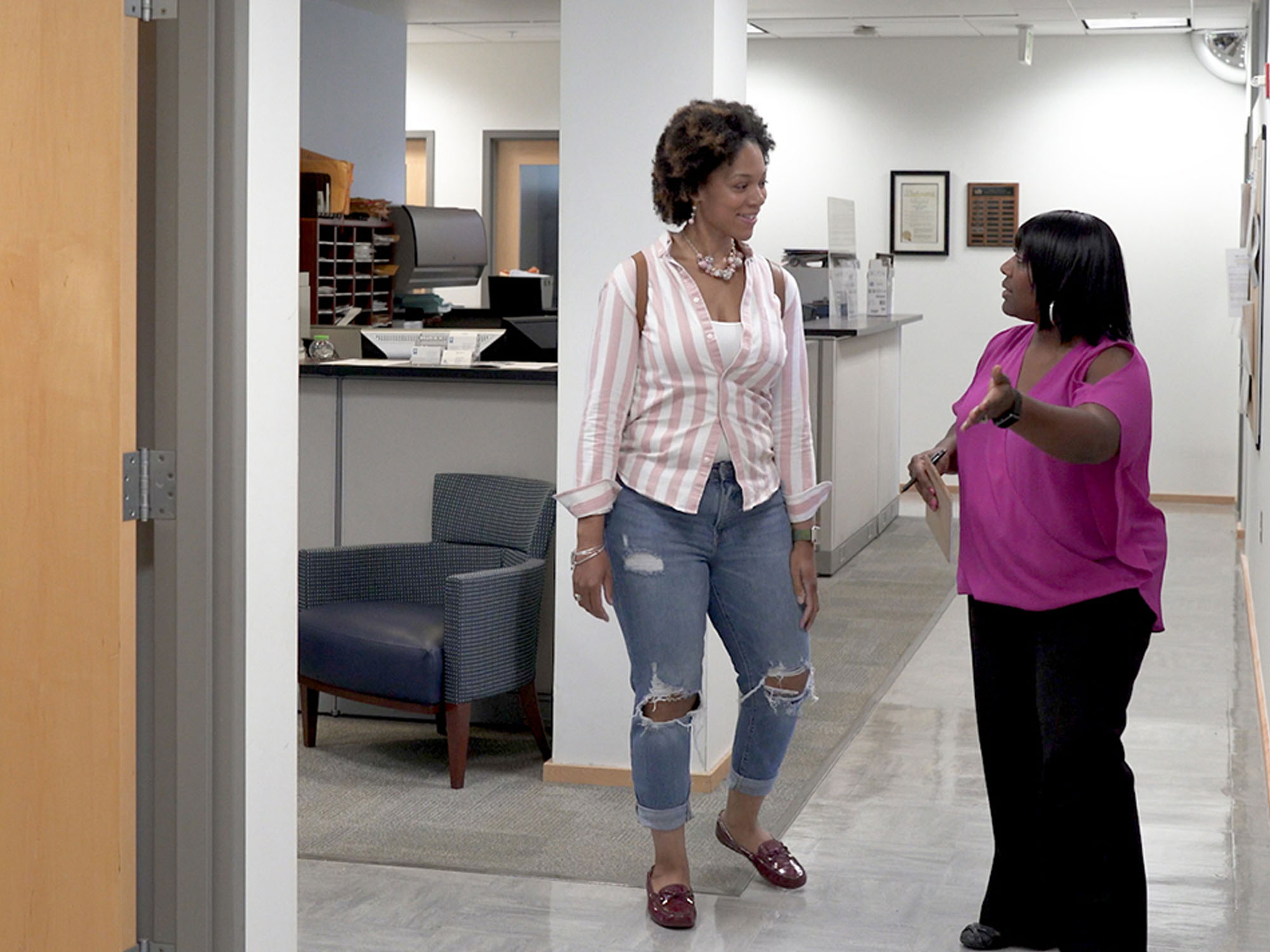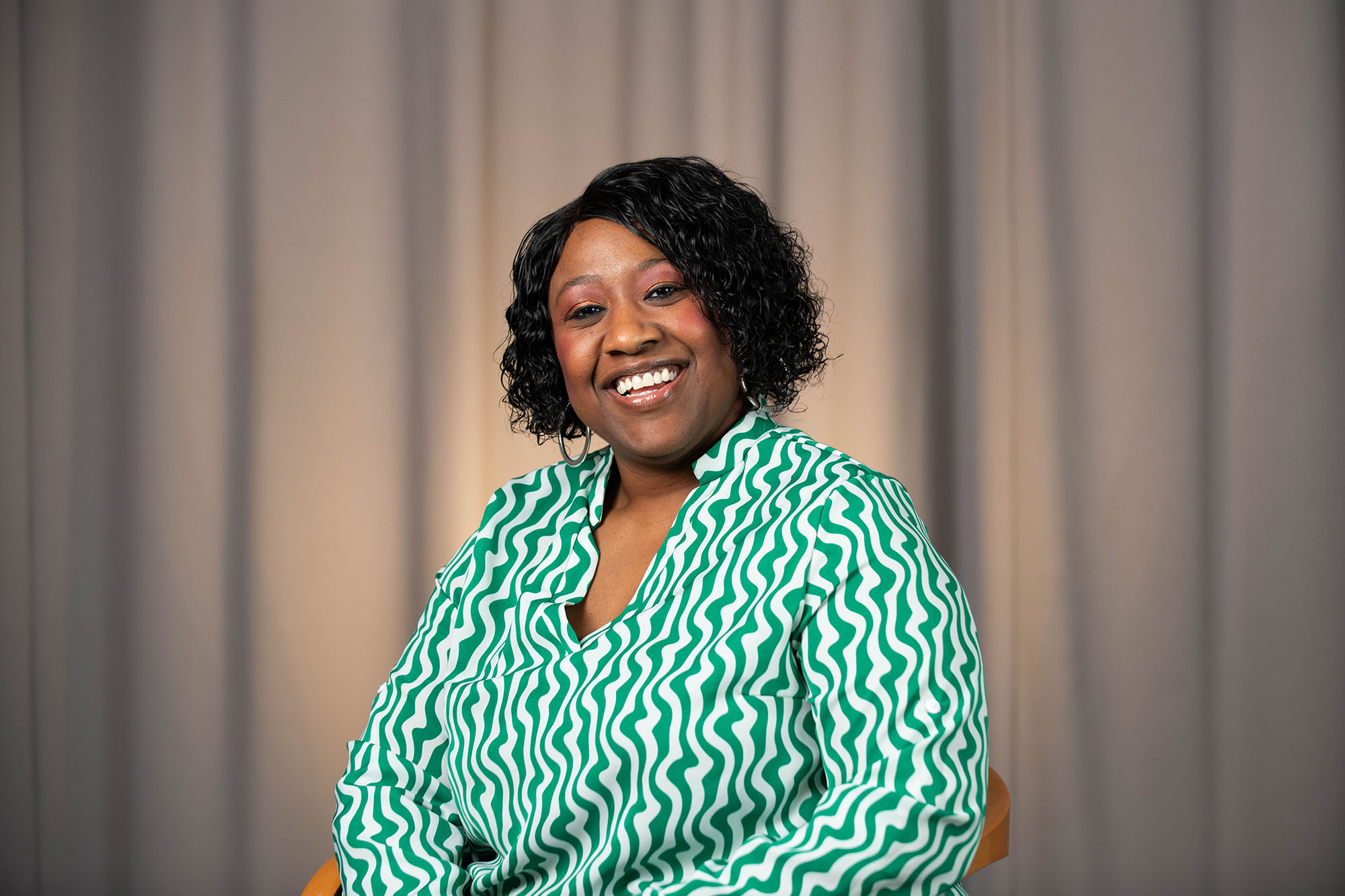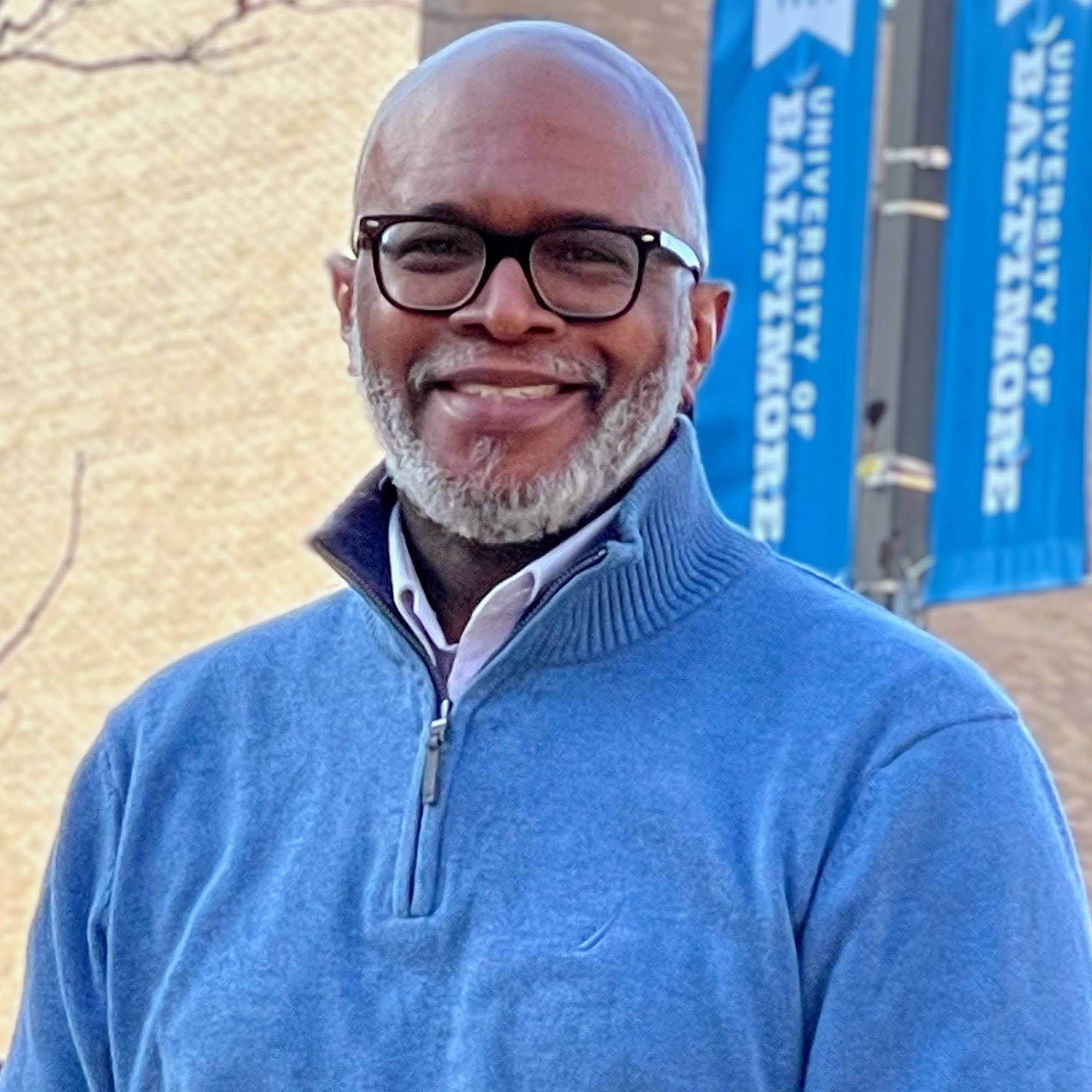
The University dedicated to Knowledge That Works prides itself on supporting students who are balancing coursework with their careers, those seeking new pathways, and those who are preparing themselves for their first career.
The University of Baltimore’s Career and Internship Center (CIC) offers faculty various resources, so they’re better equipped to support their students. Each year for the past three years, the center also honors faculty and staff who stand out for their commitment to advancing students’ careers.
Career coaches within the career center select the nominees based on how much they work with the center and connect its resources with their students, such as through class visits and service recommendations.
"We recognize that, though we might be the career center and provide a centralized service, career development happens all around campus," said Lakeisha Mathews, career center director. "We think it's very important to encourage staff and faculty to have career conversations with students and to work with our office, because we are all playing a role in helping our students succeed in their careers."
The 2025 Career Champions are Dr. Jennifer Keohane, associate professor for the Yale Gordon College of Arts and Sciences and director for the B.A. in Digital Communication program; Dr. Dawnsha Mushonga, associate professor for the College of Public Affairs’ School of Health and Human Services; and Michael Swaby-Rowe, advising center manager for the Merrick School of Business.
We asked these honorees to share more broadly their advice and go-to resources. Here’s what they said.

Dr. Jennifer Keohane
Q: What type of advice do you give your students about careers?
A: I always tell students in Digital Communication to try to find internships. Not only will it help them build their work experience, but they'll likely end up crafting pieces that they can put into portfolios. And they'll expand their professional networks. I love encouraging them to look at the NextGen Program for Public Service, as they can get paid for doing their internship!
Q: How do you use Career and Internship Center resources to help students?
A: The CIC has a wealth of resources available online to help students think about, begin, or swerve on their professional journeys. I also emphasize to students that our career coaches have experience working with students like them—students who may be older, have come back to school to make a career pivot or are already working full time. Career coaches can help them strategize how to talk about the work experiences they already do have and leverage those skills to get their foot in the door in their chosen profession. And it's all free to them! Even after they graduate!
Q: Describe your career conversations with students.
A: I love talking to students about their goals for their future careers! So many of them will go on to do things I've never even thought of or work in fields that didn't exist when I was in college. But I always emphasize persistence. It's tough to get noticed out there, especially in an age of Al and when it's as easy as clicking a button on Linked In to apply to a job. Sadly, a lot of the time, you'll apply to a job that you think you're a perfect fit for and just never hear back. You just have to keep putting yourself out there and using your network. You can't land a job you don't apply for!

Dr. Dawnsha Mushonga
Q: What type of advice do you give your students about careers?
A: One key piece of advice that I share with students is to seek a career that they are passionate about. The human services field is about helping and empowering others, so there may be times when the job requires more than they have to give. But their passion will keep them going and help them to not lose sight of their "why" to make the world a better place. Also, helping them to understand that prioritizing self-care is an important part of keeping their passion alive.
Another piece of advice that I share with students is that their dream job may not be waiting for them right after graduation and to not be discouraged. Instead, I encourage them to adopt a growth mindset, viewing their journey along the way to their dream job as a process. In the field, they will likely make mistakes, but those mistakes will provide them with unique learning experiences, where they'll develop new skills and perspectives. As a result, they will become more effective helpers, and ultimately, the best version of themselves.
Q: How do you use Career and Internship Center resources to help students?
A: There are several CIC resources that I recommend to students. One recommended resource is the Career Coaching, which assists them with resume writing, preparing for interviews, and taking career assessments to understand their strengths and interests. Other recommended resources are the free professional headshots and the Career Closet, which offers free professional attire. Making a strong first impression is important and having the proper clothing really makes a difference. As they say, "When you look your best, you feel your best."
Also, social media platforms, such as Linkedln, are important in establishing professional networks, and these resources help them to make a great first impression. I truly believe that one's financial situation should not be a barrier to success, so students are often reminded of these valuable resources.
Additionally, some students may have difficulty finding time to get to CIC to learn more about their available resources; however, CIC offers class presentations, which increases students' access to their services, which is a major plus!
Q: Describe your career conversations with students.
A: In my courses, I am intentional about building a sense of community, so that students know they have a support system, both inside and outside the classroom, and long after graduation. In addition, I invite guest lecturers and share "lessons learned" from my experiences in the field to provide students with some insight about the various jobs they may encounter.
Our initial classes together are used to learn more about each other, which includes inquiring about their interests and what they want to do after graduation. During this time, I remind them that I am available to speak with them at length about their desired career path, which may include graduate school. This has led to many students speaking with me before or after class and/or requesting individual Zoom meetings, which has been helpful to approaching career conversations with students.

Michael Swaby-Rowe
Q: What type of advice do you give your students about careers?
A: The conversation around career usually happens right at the beginning. During new student advising intake, I like to take a pulse on what the student's employment situation is currently. Are they strategically preparing for an upcoming career shift by obtaining their UBalt degree, or are they looking to gain new skills to become more marketable in their current role with their UBalt degree? Either way, students are made aware of the access they have to the Career and Internship Center and their dedicated Career Coach in their program in the UBalt portal. My advice to all my advisees is to "plug in" early with the CIC and get familiar with the services no matter where they are in the career cycle.
Q: How do you use Career and Internship Center resources to help students?
A: Many of our students work in some capacity—whether part-time, full-time, in professional roles, or wage earners—while pursuing their studies. Some may even need to change jobs during their time at UBalt to enhance their earning potential. I encourage advisees to connect with their Career Coach early and stay informed about special events through the CIC's website or email announcements.
Q: Describe your career conversations with students.
A: Once students reach a predetermined credit threshold, a mandatory advising hold is placed on their account, preventing registration for the upcoming semester or term. This serves as a prompt for students to schedule a meeting with their assigned advisor, allowing advisors to initiate important discussions. Conversations about academic progress, critical course selection, internship opportunities, and post-graduation goals help me align students with the most relevant CIC services available to support their success.

